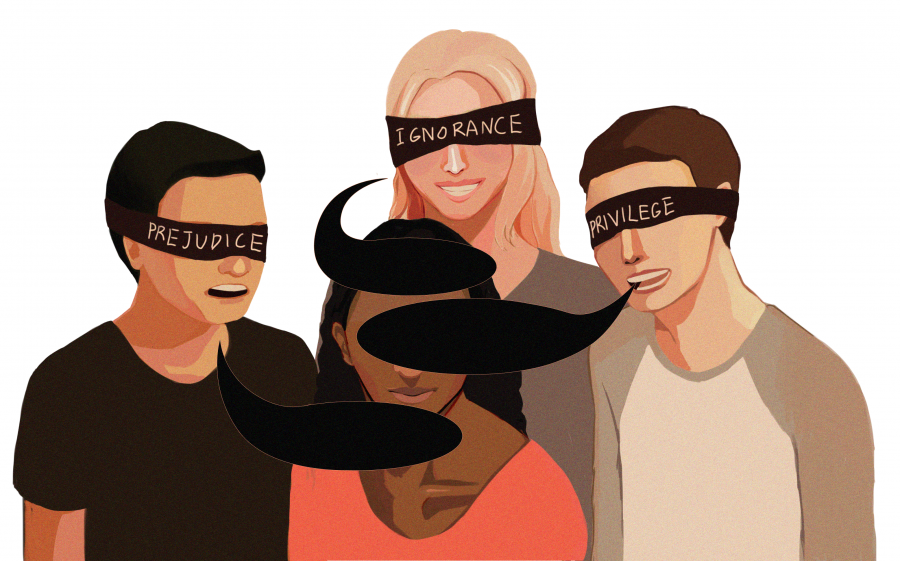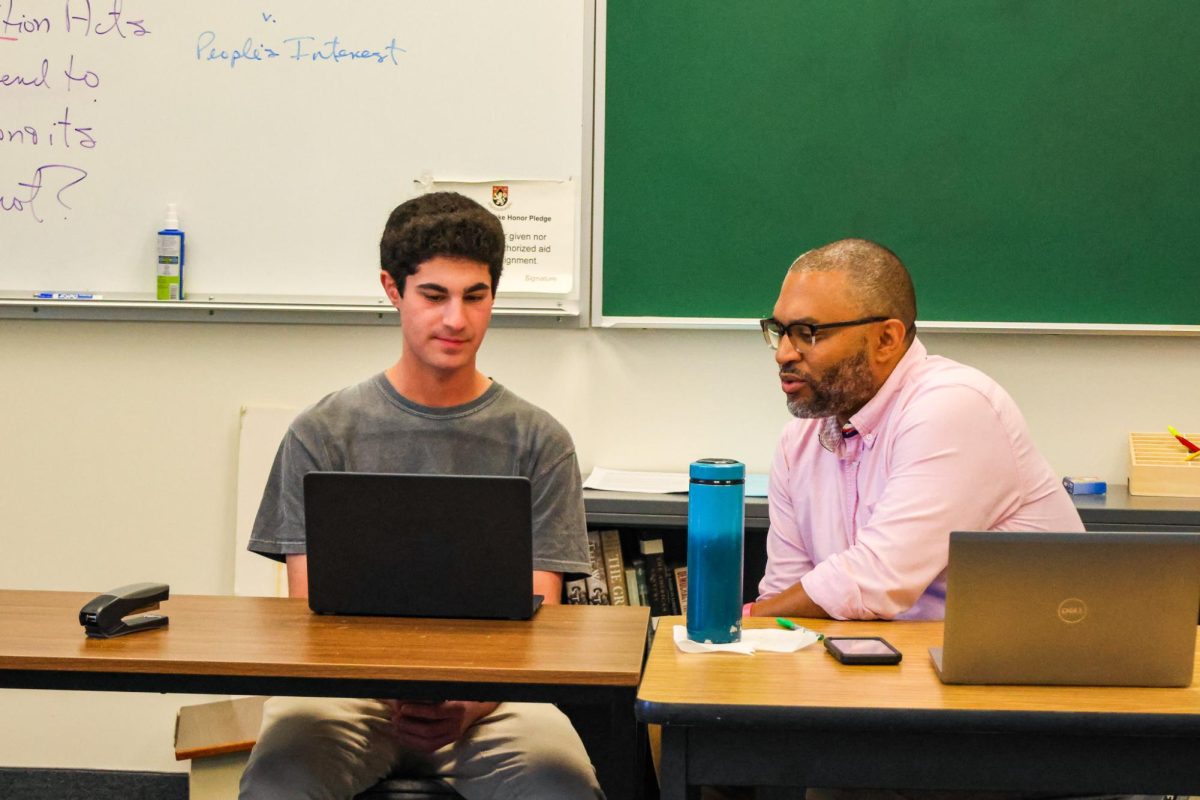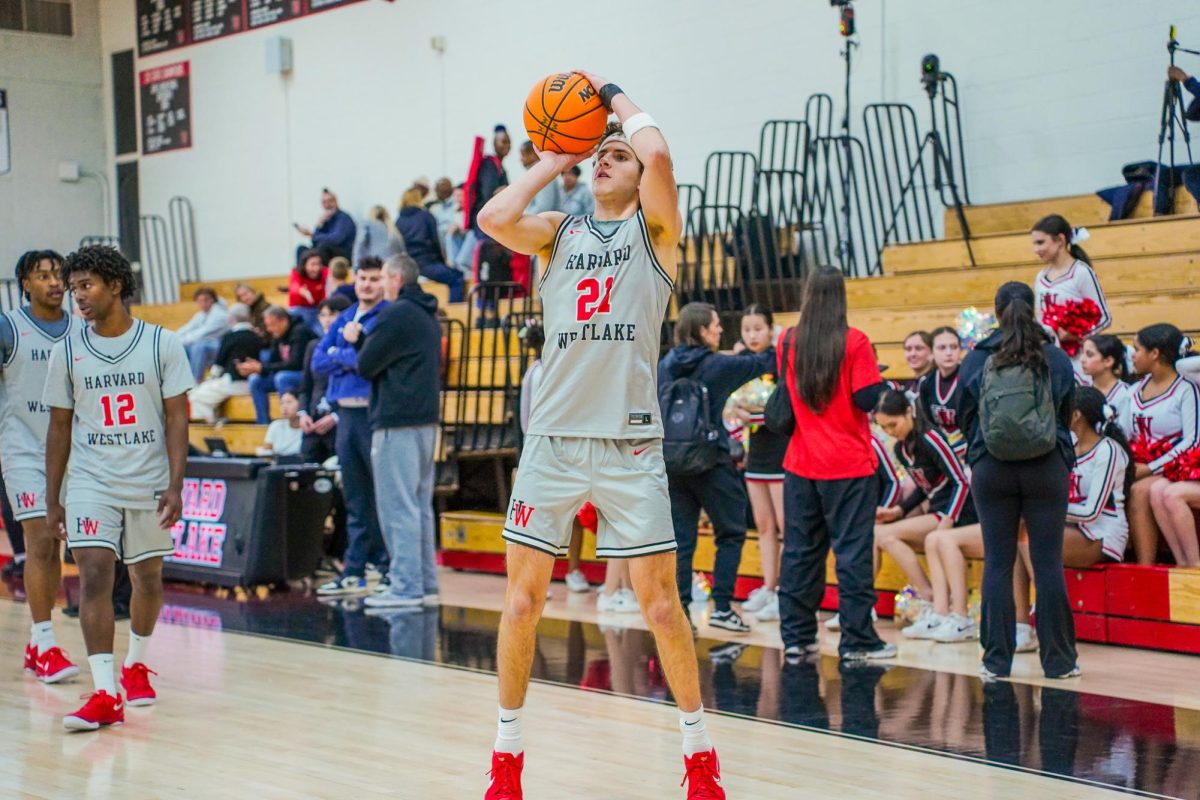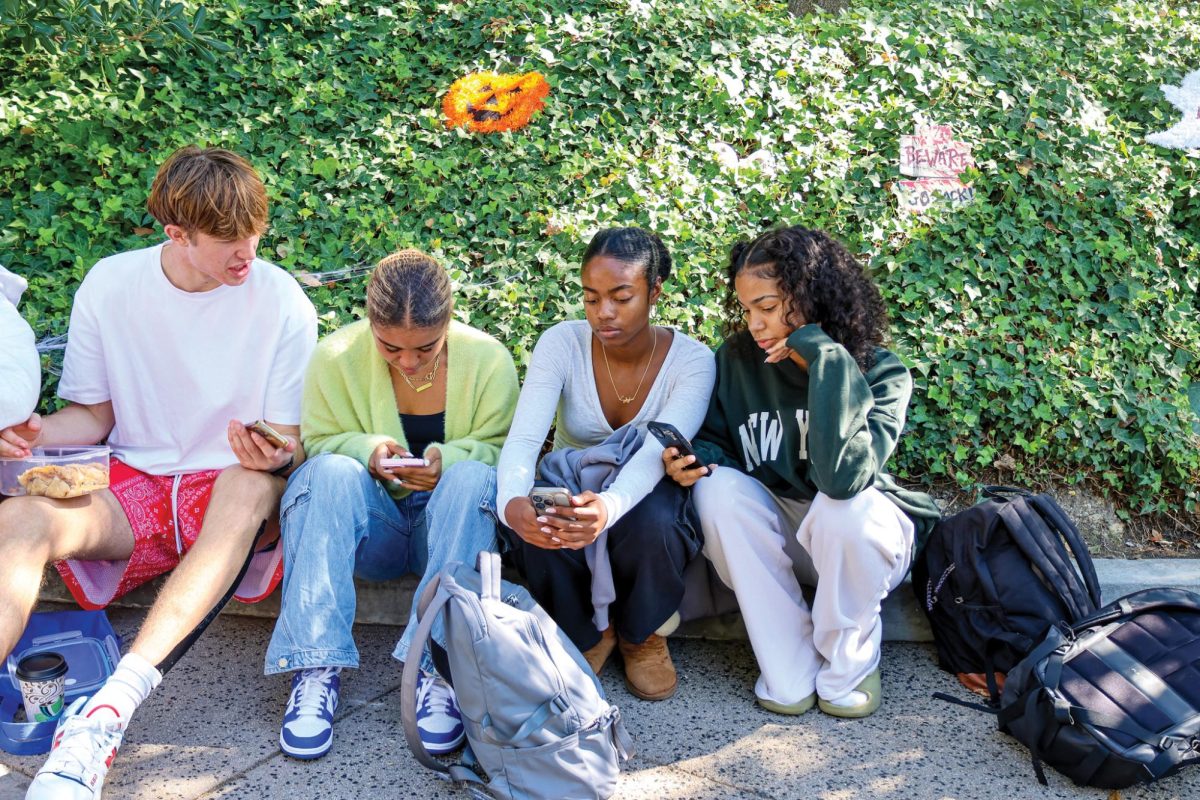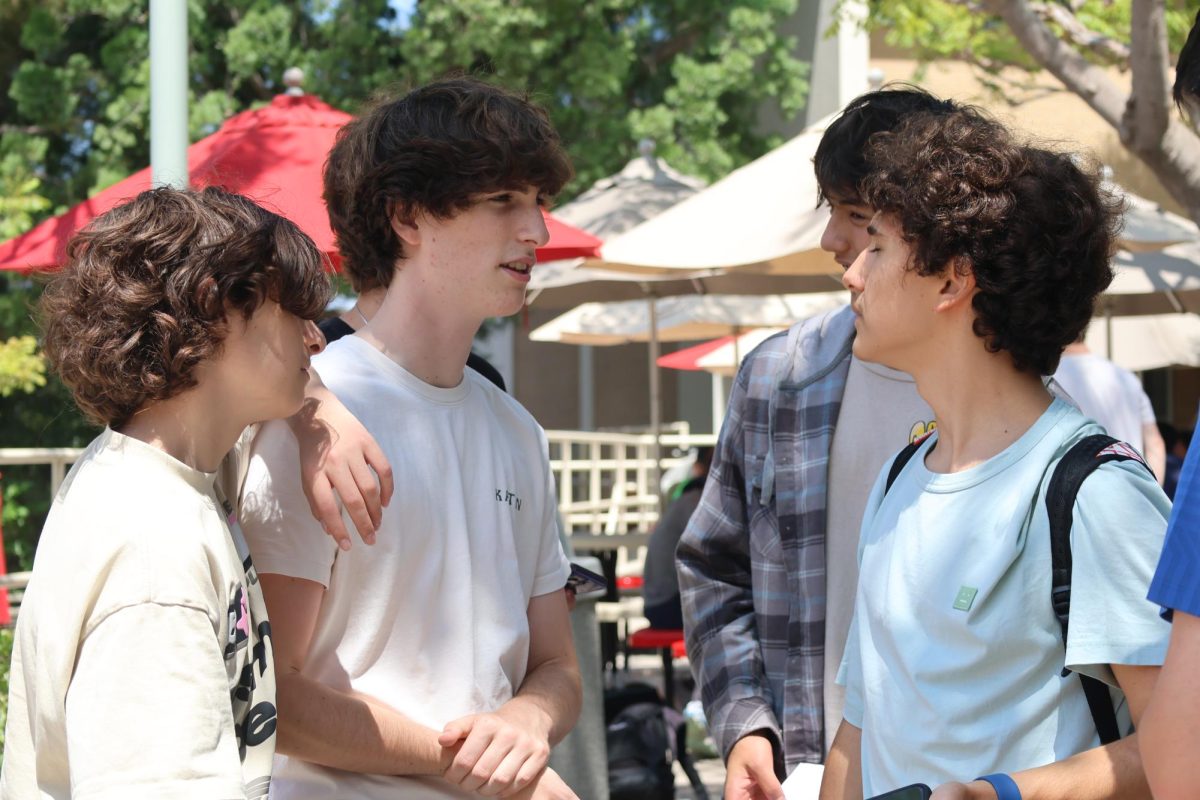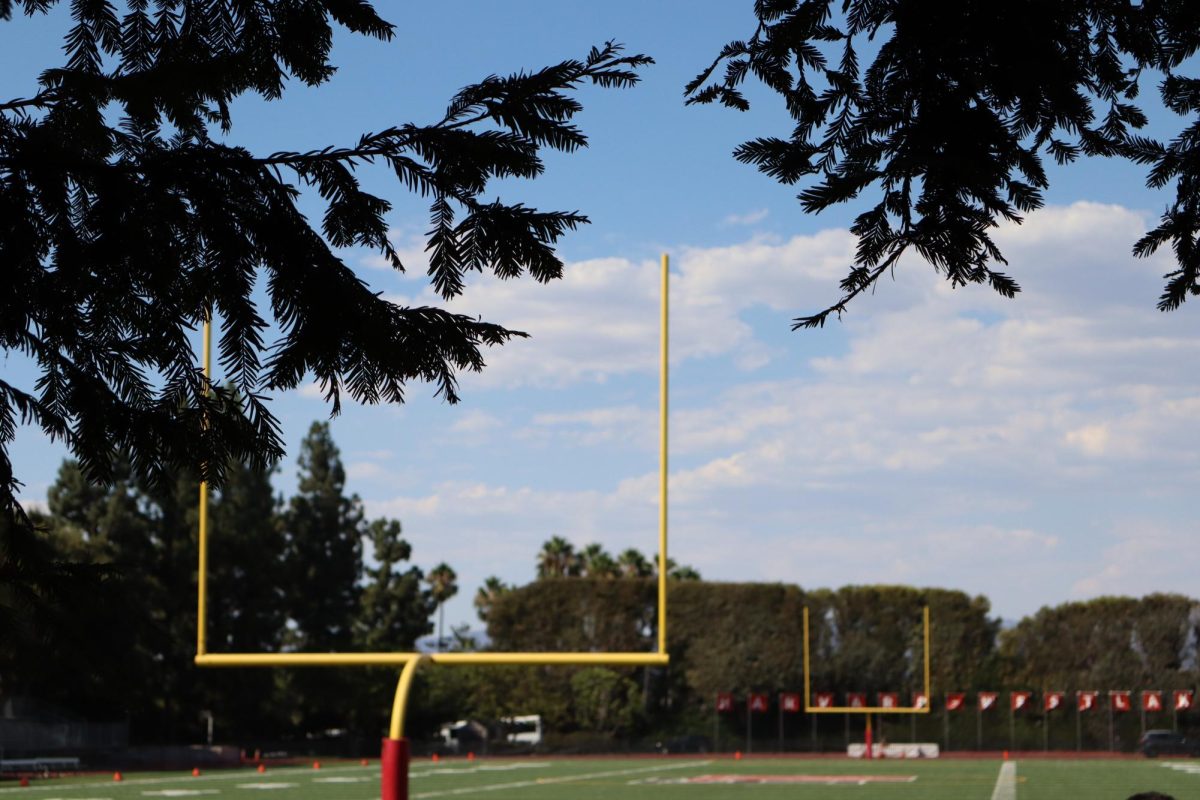After a video surfaced last week of some white students from Brentwood School singing a rap song with the n-word, upper school deans decided to open up a conversation about racial insensitivity among Harvard-Westlake students.
“Honestly, this is an issue that I personally feel really strongly about, so when I saw that video, it just stuck with me,” upper school dean Beth Slattery, who is white, said. “I spent a lot of time that night looking at the Change.org petition, reading the comments and feeling that if I didn’t do anything I would just be part of the problem. There are too many times when teachable moments come along and we as a school don’t seize them because things are too busy or it’s too inconvenient.”
On May 17, students from Brentwood posted a Snapchat video of some white students partying on a yacht and singing “Dump Dump” by A$AP Ferg. Other students sent the video to Brentwood administration and posted it to a Change.org petition, calling for disciplinary actions and shedding light on Brentwood’s lack of diversity.
Lyrics to the song are explicit, including the refrain caught on tape: “I f***ed your b**** n****, I f***ed your b****.”
At a junior class meeting Wednesday, Slattery expressed her indignation of the students’ actions and urged Harvard-Westlake students to be mindful of white privilege, a blind spot for students who have not experienced racism. White students cannot understand the implications of casually saying racist slurs, so they do not have the right to determine how a minority student feels in response to the video or similar situations, Slattery said in her announcement.
“Being told the n-word is not that big of a deal (even when it’s in a song) by someone who is not black is disrespectful on so many levels,” Phaedra Robinson ’17 said. “I think Mrs. Slattery said it very well in her talk to the juniors: privilege, in all scenarios, should not give people a pass to feel like they can tell others what they should and shouldn’t find offensive.”
Administrators, deans and students said that they feel the school needs to facilitate more conversations to be proactive rather than reactive to prejudice of any kind.
“When you think about what Brentwood did, they put out the [official school] statement, but we’re talking about reaction as opposed to something that’s proactive,” upper school dean Chris Jones, who is black, said. “I know the conversations need to be taking place, because it could easily happen here with very well meaning people who just don’t understand what the issues are. If they don’t understand the issues we can’t necessarily expect them to abide by whatever our societal rules are. We need something to make sure that we educate.”
Similarly, some students believe those Brentwood students themselves are not racist, but that the video demonstrated a general lack of sensitivity to differences that has to be changed.
“I knew one of the people who was in the video, and I guess saying the n-word is racist, but I don’t think in the context that they were saying it was racist,” Charles Flippen ’18, who is black, said. “I don’t think that they should be expelled or suspended. People at Harvard-Westlake do that all the time when they’re singing a song. It is unfortunate that they thought they could put that on social media and that would be okay, but I think that this incident isn’t something that reflects individually on those students, but really represents a bigger problem.”
In a Chronicle poll, 75 percent of students who responded said they have seen the video and 91 percent said that they believe something like this could have happened at Harvard-Westlake.
“A video surfaced this year of a [Harvard-Westlake]ninth grader saying the n-word, and just like in the Brentwood case, nothing really happened to him,” Black Leadership and Culture Club Head Nina Milligan ’16 said. “I know that a lot of students casually sing the n-word and probably use it casually, just not around other black students.”
Some students said that they feel this general problem of prejudice has affected them personally. In fact, 55% of minority students surveyed said that they have experienced racial prejudice at Harvard-Westlake.
“I’ve seen many people at school use the word in songs or just outright say it in conversation,” Robinson said. “Through my time at Harvard-Westlake, I’ve had multiple incidents with people using the word around me. Even though I’ve tried to communicate that I am not okay with the word at all, I know those same people continue to do it, and I still continue to hear the word used on campus.”
Diversity has been a topic on campus all year. From students talking about racial tensions on college campuses to a March visit by University of Southern California professor Ange-Marie Hancock who urged students to recognize their own implicit or unintentional biases towards people of different races.
The BLACC planned to meet with senior dean groups to address the use of the n-word on campus, but due to the amount of education needed to catalyze conversations of that kind, club membershave decided to delay those talks until next year, Jones said. He also added that the campus needs to stimulate these conversations school wide, not just in senior and junior class meetings. The administration also announced earlier this year that the school is looking to hire a diversity coordinator and more teachers of color in an effort to proactively combat racial prejudice, whether subconscious or conscious.
“Certainly the students I’ve worked with at Harvard-Westlake are really quite lovely, and don’t want to be hurtful, but it’s easy to accidentally hurt others, so we just need to be careful about that,” Head of School Jeanne Huybrechts said. “I think hearing from peers [about these issues is ideal], because students don’t necessarily want to hear from the President or Head of School or principal. I think it would be great to engage in some kind of conversation about this.”



























